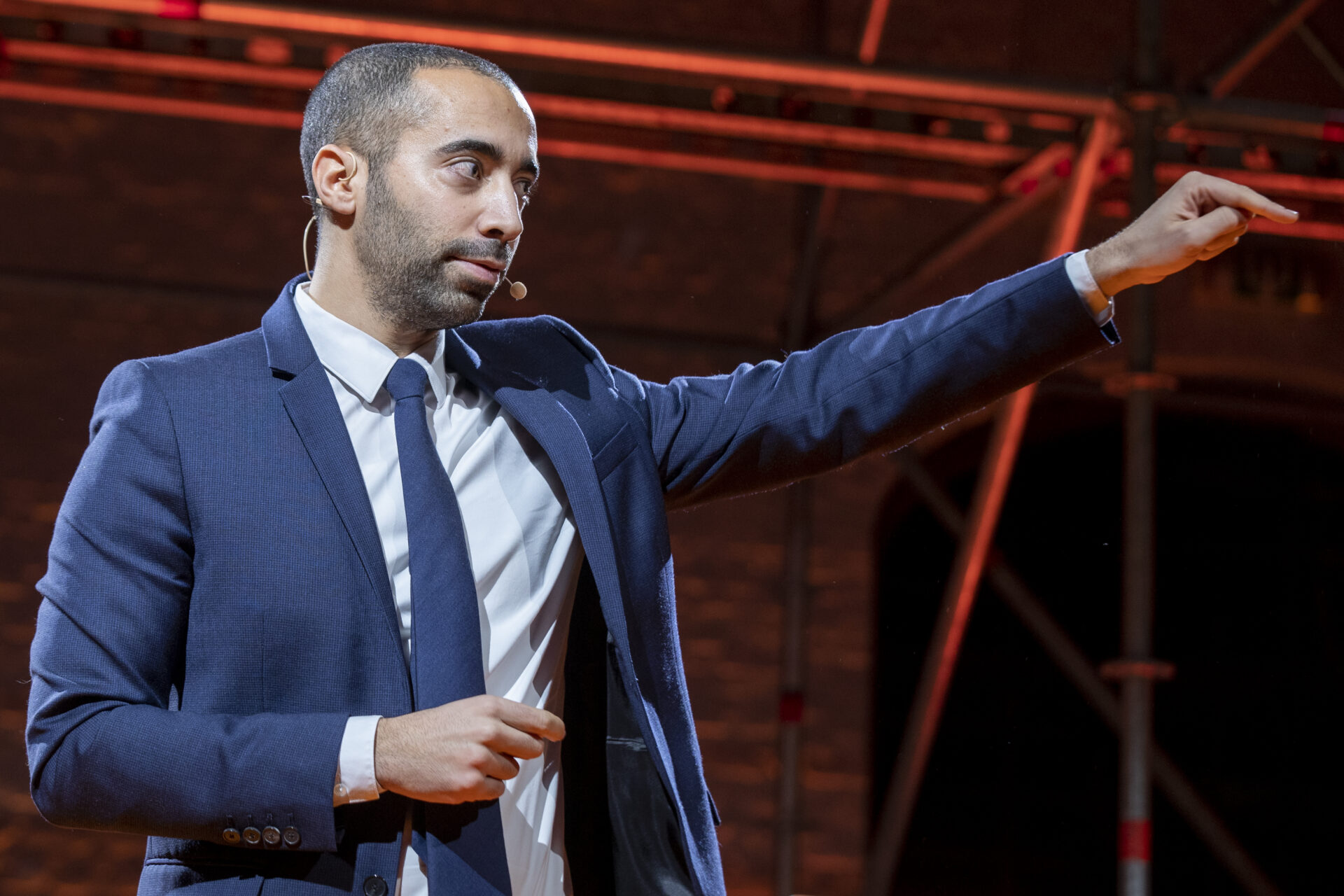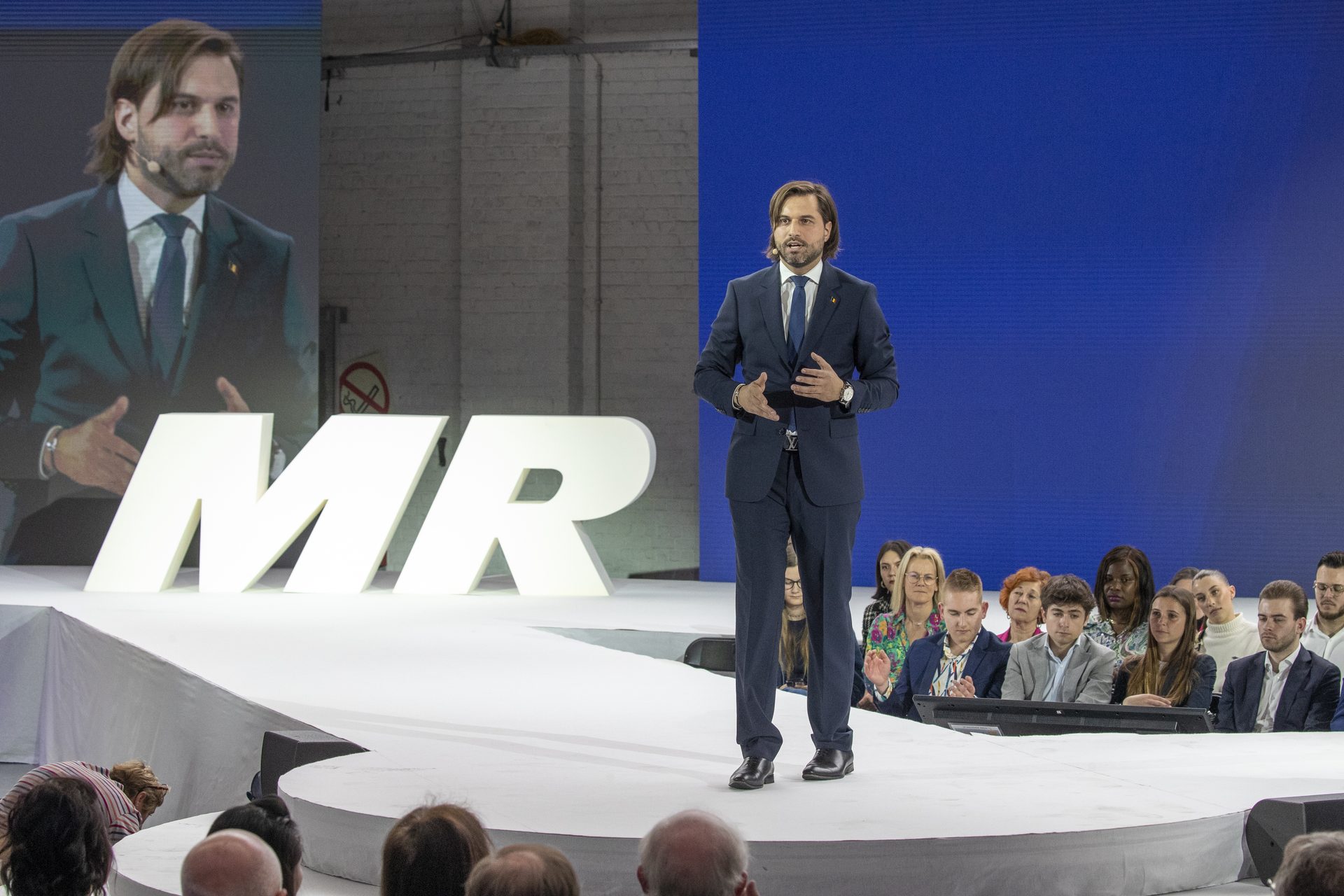Nearly all political parties in Belgium are taking a more right-wing position than in 2019 for the upcoming elections, as the country's political landscape is continuing to fragment into a centre-right and centre-left bloc.
Research by the University of Antwerp (UAntwerp) looked into how left-wing or right-wing Belgium's political parties are and how their positions have changed from the previous elections. In total, the parties were presented with 251 policy propositions, and whether they agreed or disagreed determines whether they think left or right on that issue.
The researchers, led by political scientist Stefaan Walgrave (UAntwerp), made a distinction between economic statements (such as 'taxes on the highest wages should be reduced' or 'you should be able to work indefinitely as a student worker') and cultural statements ('the police may use cameras with facial recognition' and 'the EU's external borders must be monitored more closely').
CD&V moves away from the centre, Vooruit towards it
Christian-Democrat CD&V, far-right Vlaams Belang, radical left PTB-PVDA and socialist Vooruit have all moved to the right on so-called cultural issues – although not to the same extent or for the same reason.
Particularly CD&V, which has traditionally been a very centrist party, is making a big shift to the right, especially on a cultural level, as party leader Sammy Mahdi has underlined in several interviews.
"It is the biggest shift we are seeing in Flanders," Walgrave told De Standaard. While it is said that CD&V would follow a more centre-left course in economic terms, the data is less clear on that front; the party is even moving a bit to the right economically (with its proposal to limit unemployment over time, for example).
On the left side of the spectrum, an almost identical shift happened at the Flemish socialist Vooruit party, mainly driven by more stricter positions on migration. If CD&V – which has traditionally been a rather centrist party – is now drifting away from the centre, Vooruit is moving towards it, away from the left.

CD&V leader Sammy Mahdi. Credit: Belga / Nicolas Maeterlinck
The distance between the other parties in the left corner, the radical left Belgian Workers Party (PTB-PVDA) and Flemish environmentalist party Groen, is also increasing slightly.
On the other side of the spectrum, Flemish far-right Vlaams Belang is also shifting more to the right on an economic level. Now, the party – which has traditionally had rather left-leaning economic policies for a right-wing party – is moving closer to the Flemish right-wing N-VA (which has hardly changed its position), although the far-right remains the more economically left-wing of the two.
While Flemish liberal Open VLD has moved slightly to the right in economic terms, it is linking that shift to a much more culturally progressive programme – positioning itself fully in the left-wing half of the graph.
"The shift is not very large, but it is striking," said Walgrave.
MR jumps to the right, Les Engagés becomes only centrist party
Among the French-speaking parties, the centrist Les Engagés (a rebrand of what was previously the Christian-Democrat CDH) is making a similar shift as CD&V does in Flanders by taking steps to the right, both economically and culturally. "The transformation of CDH into Les Engagés has led to a real ideological repositioning," said Walgrave.
Additionally, liberal MR also experienced a significant economic shift to the right under leader Georges-Louis Bouchez, even positioning itself to the right of N-VA. "On the economic axis, it is perhaps the most right-wing party in the country," Walgrave said.
This shift makes the contrast with the rest of the political parties in French-speaking Belgium much more pronounced, as MR is the only Francophone party that is so far on the right side of the economic axis, as well as the only one that is culturally conservative.

MR leader Georges-Louis Bouchez. Credit: Belga/Nicolas Maeterlinck
Meanwhile, there is little movement on the left side of the spectrum. PTB-PVDA remains the most economically left-wing party in Belgium, while the Francophone greens Ecolo remains the most culturally progressive one.
While the socialist PS shifted marginally to the centre in some economic policies, they are still positioned firmly towards the left end of the spectrum – making them leagues more left-wing than their Flemish counterparts at Vooruit.
While the difference between the Flemish and Francophone socialists is perhaps the most striking, it is very clear that the French-speaking political playing field is set much more to the left than the Flemish one. "The distance between 'left-wing Wallonia' and 'right-wing Flanders' may be shrinking somewhat on an economic level, but culturally the distance seems to have increased," Walgrave said.

